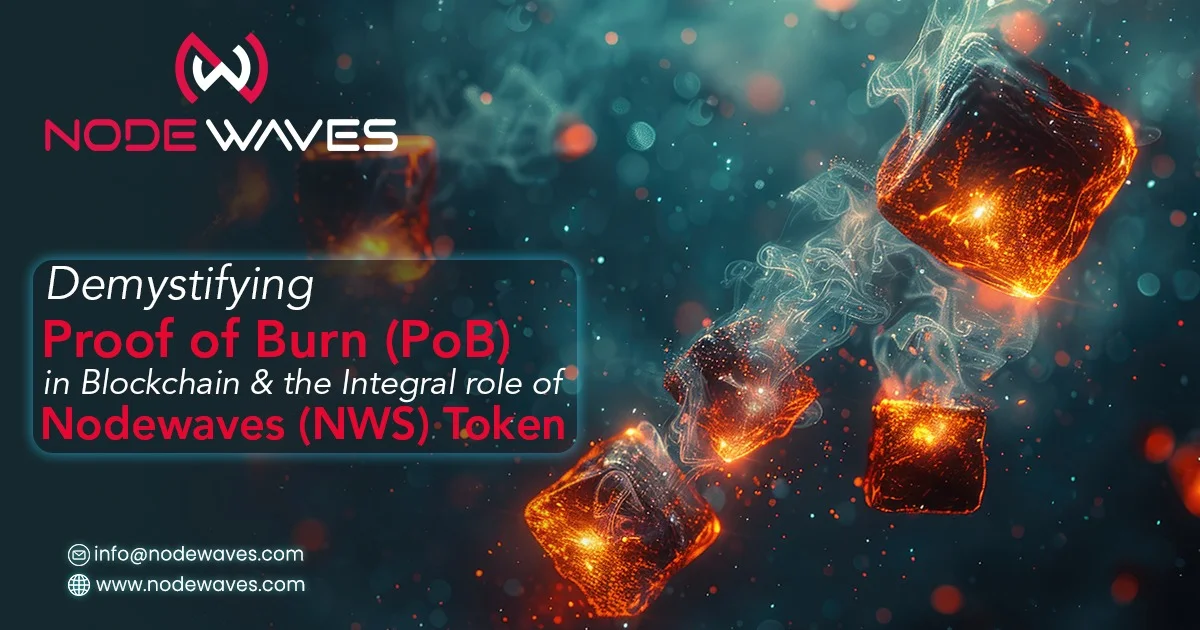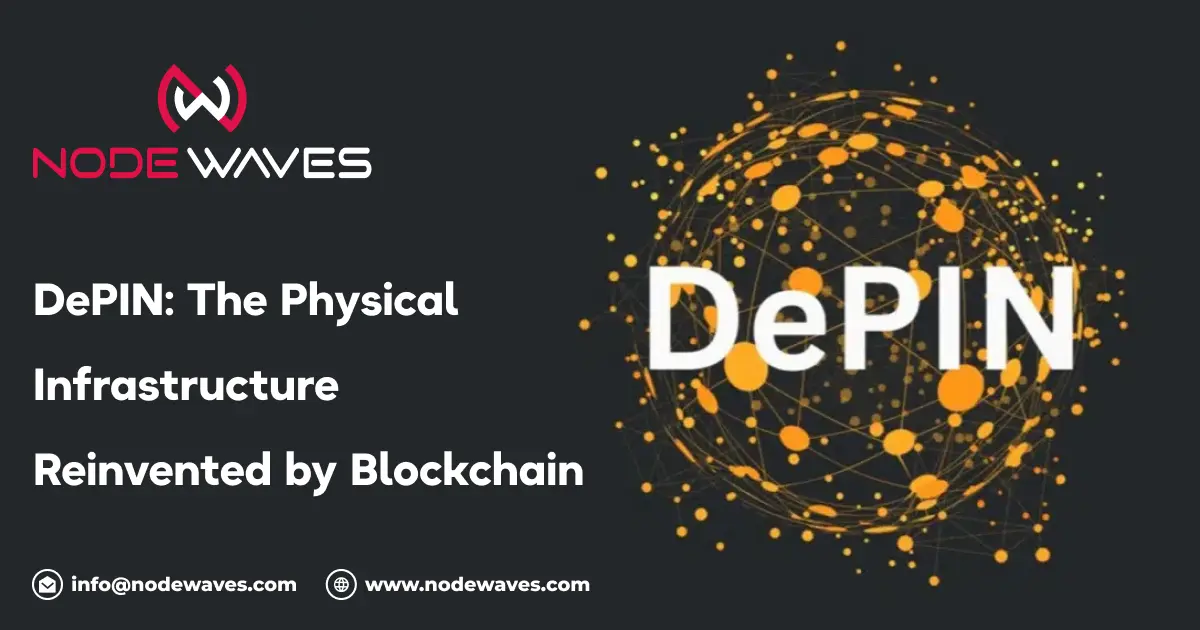Demystifying Proof of Burn (PoB) in Blockchain and the Integral Role of Nodewaves (NWS) Token
In the intricate realm of blockchain technology, evolving consensus mechanisms continue to shape the landscape. One such innovative protocol is Proof of Burn (PoB), developed to address the limitations inherent in traditional consensus algorithms like Proof of Work (PoW). This article delves into the PoB algorithm, elucidating its mechanisms, advantages, and how Nodewaves (NWS) token leverages this protocol to offer distinctive investment prospects.
Unveiling Proof of Burn (PoB)
Proof of Burn (PoB) stands as a unique consensus mechanism where miners earn the authority to mine blocks by “burning” a portion of their tokens. This process entails the deliberate destruction of tokens, permanently removing them from circulation. Miners effectively sacrifice a fraction of their assets for the privilege of adding new blocks to the blockchain and reaping the associated rewards.
The Mechanism of PoB
In the PoB protocol, miners dispatch a certain quantity of tokens to an unspendable address, often referred to as a burn address. These addresses are publicly verifiable and are generated without any private keys, rendering the burnt tokens inaccessible. This act of burning tokens symbolizes a miner’s commitment to the network, with the amount of burnt tokens directly correlating to their likelihood of being chosen to append a new block.
Comparative Analysis: PoW vs. PoS vs. PoB
While PoW relies on computational prowess and PoS necessitates staking tokens to validate transactions, PoB offers a distinct approach. By burning tokens, PoB significantly diminishes energy consumption compared to PoW and eliminates the need for staking seen in PoS. This makes PoB an environmentally sustainable and efficient alternative, fostering long-term network stability and security.
Nodewaves (NWS) Token and PoB
Nodewaves (NWS) token seamlessly integrates with the PoB protocol, enhancing its operational efficiency and investment potential. By leveraging the Polygon network, NWS ensures expedited transactions and reduced fees, creating a user-friendly experience for stakeholders. The strategic burning of NWS tokens not only secures the network but also positions token holders to benefit from potential rewards.
Practical Application of PoB
Consider a scenario involving six miners, each eager to add their transaction block to the network. To do so, they must burn a portion of their tokens. For instance, John, who burns the most tokens, earns the opportunity to add his block. If John’s block is validated by the network, he secures the reward. However, if the block is deemed invalid, the miner with the second-highest burned tokens, Ross, gets a chance.
Equity Among Network Participants
PoB fosters fairness by encouraging periodic burning of tokens, thus preventing early adopters from monopolizing the network. This cyclical reduction in virtual mining power ensures that both new and seasoned participants engage in regular transactions, promoting continuous network activity and stability.
Advantages of PoB
- Energy Efficiency: PoB minimizes power consumption, making it an eco-friendly alternative.
- Sustainability: It obviates the need for resource-intensive hardware, ensuring long-term viability.
- Encouragement of Regular Transactions: Miners are incentivized to maintain consistent activity within the network.
Limitations of PoB
- Wealth Concentration: The mechanism necessitates affluent participants to burn tokens, potentially skewing opportunities.
- Scalability Concerns: PoB has yet to demonstrate efficacy on a large scale.
- Slower Validation: The process of validating transactions can be slower compared to other algorithms.
Conclusion
This discourse elucidates the Proof of Burn (PoB) mechanism, illustrating its operational nuances and comparative advantages over PoW and PoS. The Nodewaves (NWS) token, with its integration into the PoB protocol, epitomizes the potential for innovative investment strategies within the blockchain ecosystem. As blockchain technology continues to evolve, PoB represents a paradigm shift towards sustainable, secure, and equitable consensus mechanisms.






